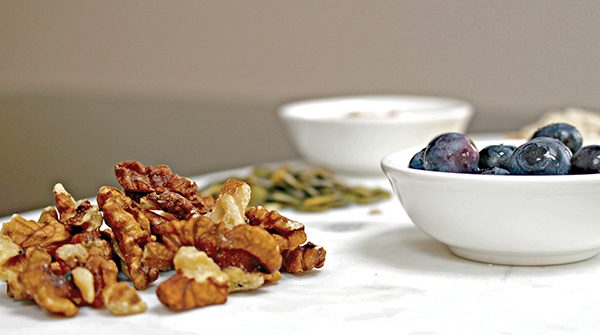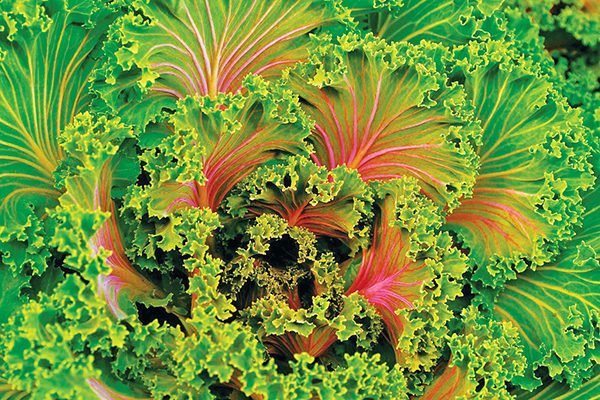
Images courtesy of Jaclyn Doyle.
Low carb, low calorie, high fat, low fat, juice cleanse, Zone, Atkins, Paleo, Vegan, Vegetarian… etc, etc, etc. There are a lot of diets and buzzwords in the health realm that it makes it difficult for anyone to choose what is right, where to start, and how to maintain.
The problem that we are seeing these days with modern diets is that foods are chalked full of sugar, high in additives and preservatives and completely over-processed. Some of the so-called “diets” that are on the market at the moment will most likely leave you with less energy, more fatigue, increased weight gain, mood swings and more severe depression.
Two diets that I want to focus on are ones that often can cause the most confusion: Low Calorie Diets and Low Fat Diets. Let’s take a look at the harmful effects that these diets could be having on our bodies.
Low Calorie
I cannot stress enough the issues that are associated with calorie counting. I believe that the only reason anyone should ever count calories is to ensure that you are getting enough calories. If you are eating a diet that consists of whole and unprocessed foods you will not only be satiated but also have no need to consume an overabundance of calories and therefore have no need to count calories.
When a snack, pre-packaged breakfast, lunch or dinner is advertised as “low calorie” this typically means that there are additives added, extra sugar and/or sweeteners added along with other processed chemicals that are harmful to our bodies.
It’s no harm to snack on something that is lower in calories, but it should be a food that is whole, unprocessed and natural. Our bodies are not meant to digest all of the processed ingredients in certain foods these days.
Take for instance a Kellogg’s Blueberry Bliss Bar, advertised as only 100 calories. The second ingredient in these bars is corn syrup and the third is sugar, meaning that they are very high in sugar.
High sugar foods are harmful on our bodies as it causes a spike in insulin which causes weight gain and leaves us hungry shortly after eating. These bars also contain artificial flavours, sorbitol (low calorie sweetener) soy lecithin (an additive) and only 1 gram of fibre. This bar will leave you feeling hungry and probably craving something else high in sugar shortly afterwards.
A better snack choice in this case is an apple or nuts. An apple that is whole, unprocessed with no added sugars or additives will not only fill you up but will also be a lot nicer on your digestive system. Try these healthier low calorie options: Apples, handful of almonds or cashews or the ‘no bake protein balls’. (See Culinary Corner)
Low Fat
Another fad diet that causes confusion is eating “low fat”. This word “fat” is something that we used to be so afraid of consuming and is often correlated with getting fat. With all the recent research and findings coming out on good fats, it is 100% something that you should be including in your diet. Good fats provide us with energy and healthier skin. They help the body use vitamins and when added to a meal, leave us feeling satiated.
If you read a label that states it is “low fat” this is typically going to be something that has been processed and full of additives and chemicals. By removing the fat from a food, typically the manufacturers have taken out the fat and replaced with either sugar, corn syrup and other ingredients that are not ideal in any way for our digestive systems. We are not able to process a lot of these moderns ingredients that are being added to foods.
Don’t be fooled by the fat-free label. A fat-free Yoplait Strawberry Banana yoghurt pot has ten grams of sugar, which is very high for a very small amount. In this case I would choose Greek yogurt (not the fat-free version) so you can still reap the benefits of yogurt without all the added sugar.
Another fat-free version that we often can be fooled by is salad dressings. A typical fat-free Italian salad dressing contains high fructose corn syrup as the third ingredient among other processed ingredients. A much better choice is to make a homemade salad dressing consisting of olive oil and balsamic vinegar. Try these good fats: avocados, Greek yogurt, nuts, coconut oil, olive oil, salmon.
Starting your health journey does not need to be overly complicated and you do not have to feel as though you are depriving yourself. Think of how happy, lively and energetic you will feel when you are digesting foods that our bodies are actually meant to be digesting! You will be ridding yourself of toxins that essentially get stuck in our bodies, making us feel lethargic and depriving our energy. Start small, make necessary tweaks and don’t beat yourself up if you digress once in a while. Balance is key.
Try these simple steps and your mind, body and overall health will thank you for it!
1. Eat whole, unprocessed foods and stay away from “low calorie” and “low fat” packaged foods.
2. Move your body – This is so important. When you move your body in any way, a walk, light jog, stretching, anything you will feel instantly lifted, your mood will be better which alternatively will help you make better food choices.
3. Add an extra portion of veg to every meal – an easy and effective way to get more greens.
4. Watch your refined sugar count including sweets, fizzy drinks, cakes and cookies.

Images courtesy of Jaclyn Doyle.
Jaclyn Doyle is a certified nutritional therapist and helps clients improve their overall health, achieve their desired goals and develop habits that will lead the individual to a healthy and balanced life. Contact Jaclyn at jaclyndoyle4@gmail.com to set up your one to one nutritional consultation and visit healthistic.com for more healthy tips.
By Jaclyn Doyle



